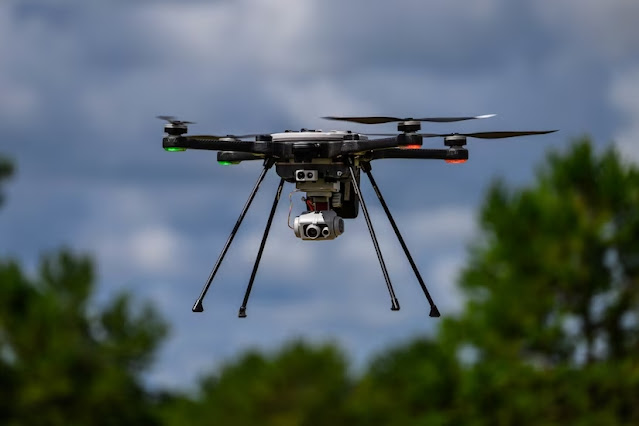June 15, 2023 | By Joseph Clark , DOD News |
DOD policy on AI is publicly available
The Department of Defense (DoD) of the United States has recognized the transformative potential of artificial intelligence (AI) in enhancing military capabilities and addressing emerging security challenges. With the aim of harnessing AI technologies to maintain technological superiority and strengthen national defense, the DoD has formulated a comprehensive policy framework. This policy emphasizes the responsible and ethical development, deployment, and use of AI systems by the military. It encompasses guidelines for AI research, acquisition, and implementation, focusing on ensuring transparency, accountability, and human control over AI-enabled systems. By promoting collaboration, innovation, and adherence to ethical standards, the DoD seeks to leverage AI effectively while upholding the principles of safety, reliability, and national security.--Editorial Desk
The Defense Department is prioritizing ethical considerations and collaboration in its approach to developing and fielding military applications of artificial intelligence, a top Pentagon technology official said today.
 |
| A man in uniform points to a computer screen |
Underpinning this commitment, Horowitz said, is a comprehensive set of policy decisions within DOD that governs the development and fielding of autonomous weapon systems, ethical artificial intelligence strategy, and the development of responsible artificial intelligence strategy and pathways.
U.S. leadership, in codifying these principles, is now driving responsible artificial intelligence policy formulation among international partners, he said.
 |
| A photo illustration depicting a soldier wearing virtual reality glasses with a chess set in the foreground |
He said U.S. also led on the international stage by issuing its Political Declaration of Responsible Military use of Artificial Intelligence and Autonomy in February.
In this post a photo illustration depicting a soldier wearing virtual reality glasses with a chess set in the foreground.
"That's a set of strong norms that lay out principles of what responsible use looks like that we're now working to bring other countries on board to endorse since we think that bringing the international community together on this issue, that there is a lot of possibility for cooperation and we want to encourage the rest of the world to take these issues as seriously as the department has," Horowitz said. "And in looking at our allies and partners, we're really encouraged by that."
That commitment to the responsible development of artificial intelligence, and its transparency concerning the development of policy surrounding emerging technologies, is also how the U.S. has distinguished itself from its global competitors, he said.
He said all DOD policy surrounding artificial intelligence and emerging technology is publicly available.
 |
| A small drone is photographed while hovering |
At the same time, the U.S. has remained committed to being at the leading edge of emerging technologies, including artificial intelligence, Horowitz said.
He said the rapid advance of the technology has opened up a wide array of use cases for artificial intelligence beyond defense. The U.S. continues to be "an engine of innovation when it comes to AI."
"The Defense Department does lots and lots of different experimentation with emerging technologies," Horowitz said. "And we both want to do them in a safe and responsible way, but also want to do them in a way that can push forward the cutting edge and ensure the department has access to the emerging technologies that it needs to stay ahead."
